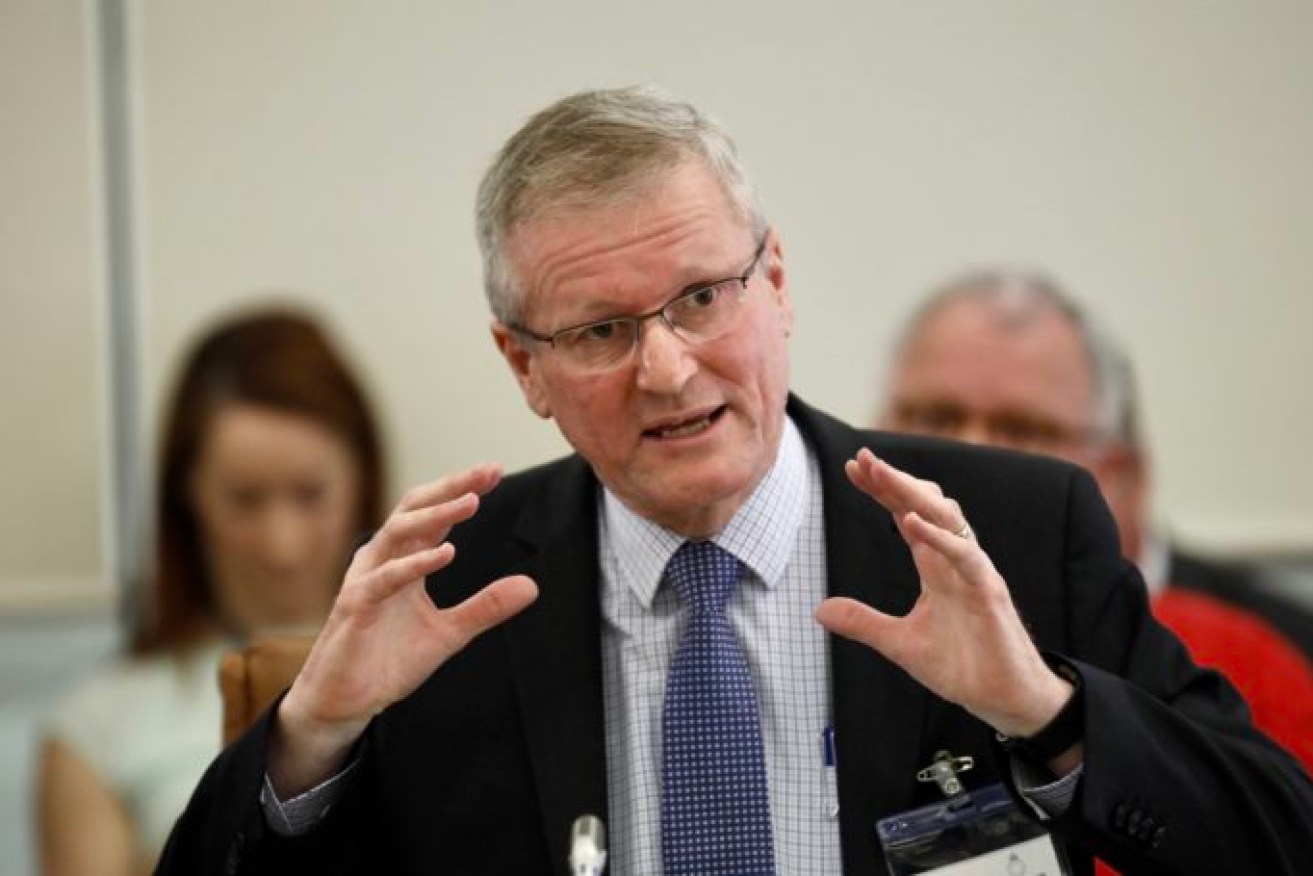Pandemic grief to last for years: chief psychiatrist
South Australia’s health services will be dealing with the mental health fallout of the pandemic for four to five years, according to the state’s chief psychiatrist.


Chief psychiatrist Dr John Brayley. Photo: Tony Lewis/InDaily
Speaking before the COVID-19 Response Committee this morning, Dr John Brayley said SA Health was working to adapt mental health services for the next stage of the pandemic.
“As we move into next year, it is reasonable to conceive that we’ll have what would be a more traditional recovery mental health response,” Brayley told the committee.
“We’re used to this … with bushfires or people who have experienced other trauma in disasters that need to be catering for that at least for four years.
“Other people mentioned five [years] – there can be prolonged effects, and that will affect different cohorts of people differently.
“People who have had COVID-19, people who might have had key events in their life interrupted or losses, grief from people who’ve lost family overseas.
“So that work is underway at the moment as we look into next year – the existing services are continuing until June 2022.”
Brayley said authorities have not observed an increase in rates of suspected suicide deaths in South Australia as of August this year.
“This is similar to conclusions that have been observed interstate,” he said.
“What we have seen and continue to see is evidence of increased stress in the community affecting all age groups, but in particular young people.
“What we do know is that there are more people presenting with distress and with suicidal distress, but people are seeking help.
“I guess there is a clear risk that if this continues, you get to a point where there could be an increase in a particular population group or an increase in overall numbers.”
It comes as South Australia’s timeline for opening its borders to the eastern states comes under further doubt.
Chief public health officer Nicola Spurrier this morning said she would “not feel comfortable” opening South Australia’s borders at 80 per cent vaccination coverage if pockets of the state have lower jab rates.
Premier Steven Marshall over the weekend stated his intention to move away from state-wide lockdowns and border closures once 80 per cent of South Australia’s population is fully vaccinated against COVID-19.
But the Premier on Wednesday added a caveat to his statement, saying authorities want to see “equity” in vaccination rates across South Australia before opening to the eastern states.
The call came after Federal Government data released on Monday showed vaccine coverage in some of Adelaide’s northern suburbs is more than 20 per cent behind the state’s inner-metropolitan and southern suburban areas.
Spurrier told ABC Radio this morning that the “real focus” of her department was ensuring equitable distribution of vaccines.
“It would be no good just having some of the more advantaged suburbs having 100 per cent vaccination and overall it looked like our average was 80 per cent, but that we had pockets of people living in more disadvantaged circumstances having more lower rates of vaccine [coverage],” she said.
“That would not be an ideal situation, and I would not feel comfortable opening borders at that point.”
The latest Federal Government vaccine data, correct as of Tuesday, shows 60.5 per cent of South Australians over the age of 16 have received at least one dose of a COVID-19 vaccine, with 41.8 per cent fully jabbed.
Asked what vaccination rate would be required to open South Australia’s borders, Spurrier said: “I would actually be hopeful that more than 80 per cent of people avail themselves to vaccines.”
“I think you really have to understand that the disease will get here and that means you have to protect yourself,” she said.
“You can’t rely on the other 80 per cent having had their vaccine, because it will be … a pandemic of the unvaccinated.”
The chief public health officer also said the Doherty Institute modelling, which forms the basis of the national reopening plan, did not take into account local disparities in vaccine uptake.
“I think it was very clear in the Doherty modelling that when they put their modelling together, they made assumptions that they haven’t considered geographic differences in vaccine coverage,” she said
“When you take a population health approach, which is my job, you have to make sure that you’ve got equity.
“You can say ‘oh look everyone’s had an ability [to get a vaccine], that we’ve had these mass vaccination clinics’, but we don’t all understand other people’s life circumstances.
“There are things that we have to do to support other communities to avail themselves to those vaccines – that’s actually the real focus of my department at the moment.”
Meanwhile, South Australia has ditched the title of the most vaccine hesitant state in the nation, according to new polling data from the Melbourne Institute.
The policy research centre’s fortnightly vaccine hesitancy tracker – which tracks responses from a representative sample of 1200 Australians every week – shows the proportion of South Australia’s population hesitant about coming forward for a jab is down to 14.8 per cent this month, compared to 23 per cent in August.
The more than eight per cent decline leaves Western Australia (22.1 per cent) and Queensland (21.6 per cent) as Australia’s most vaccine hesitant states, after South Australia held the title last month.
Further survey data released by the Institute this week shows 63 per cent of South Australians are supportive of businesses having the right to deny services to unvaccinated people – the highest rate in the country and six per cent higher than the national average.
If this story raised issues for you, call LifeLine on 13 11 14. Beyond Blue and headspace are other national organisations that offer comprehensive mental health support.




